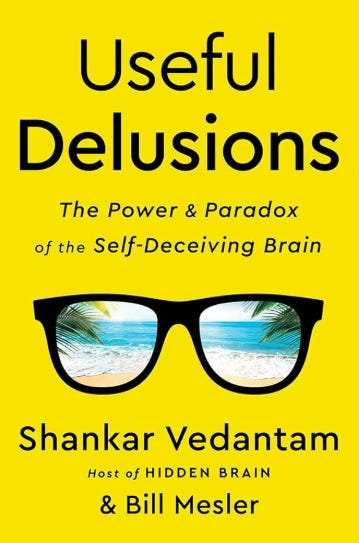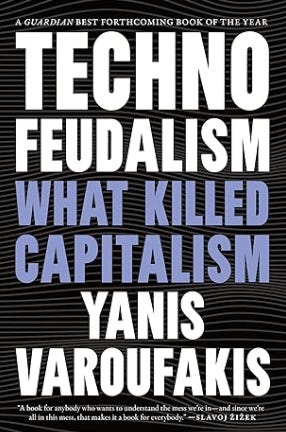The Unravelling of Truth
How Algorithms, Psychographic Targeting, and Digital Feudalism Shape Our Reality

In Leave the World Behind, a seemingly normal weekend getaway unravels into chaos as a massive cyber attack cripples the world, severing communication and triggering widespread uncertainty. The film paints a disturbing portrait of a society completely dependent on digital infrastructure — one that can collapse overnight. Meanwhile, the new series Zero Day, starring Robert De Niro, explores cyber warfare and the fragility of civil liberties in an age where digital conflicts are no longer just theoretical.
These fictional stories feel increasingly less like fiction. They reflect an unsettling reality — one where AI, cyber warfare, and digital ecosystems dictate the flow of information, with algorithms serving as the unseen gatekeepers of our perception of truth. Algorithms — driven by engagement metrics and behavioral data — determine what spreads, what is suppressed, and how narratives take hold. The result is not just an information ecosystem but an attention economy where reality itself is curated to serve profit and power. But our susceptibility to these forces isn’t just about technology — it’s about the way our minds construct reality.
As Shankar Vedantam explores in Useful Delusions, our brains are wired to create narratives that make sense of the chaos around us, often shaping illusions that serve psychological or social purposes. We don’t just passively receive information; we actively construct our own version of reality — sometimes to our benefit, but often to our detriment. Annalee Newitz expands on this in Stories Are Weapons, illustrating how narratives are not just personal but political. Throughout history, those in power have leveraged storytelling — whether through myth, propaganda, or disinformation — as a means to manipulate perception and consolidate influence. In the modern landscape, these tools have been weaponized through targeted disinformation campaigns, algorithmic manipulation, and the exploitation of psychographic data to manufacture realities that serve political interests.
Human communication began in the Tribal Age, where sound and oral traditions carried the message. Then we invented the phonetic alphabet, launching us into the Literacy Age. The printing press catapulted us into the Print Age, and the telegraph pushed us forward into the Electronic Age. About four decades ago, we created the Internet — unaware of the Pandora’s box we had just opened.
We now live in a true ‘Global Village’, an interconnected world where borders blur, and information flows without restraint. But this global village comes with challenges that we are still struggling to grasp.
Before the Digital Age, it was easy to remain confined within the knowledge of one’s own community. Information was finite, filtered, and often dictated by those who controlled traditional media. Today, that limitation is gone. The sheer volume of information available to us is staggering — perhaps even to our detriment.
It’s no longer just about corporate media controlling the flow of information. The real power now lies with the algorithms. Algorithms determine what we see, how often we see it, and how it shapes our worldview. These systems curate, personalize, and amplify content in ways that reinforce biases, shape opinions, and blur the lines between truth and manufactured reality. What was once a simple, democratizing force — social media — has become something else entirely: an ecosystem where facts compete with deepfakes, bot armies, and narratives designed to manipulate.
We saw this play out in the 2016, 2020, and 2024 U.S. elections, where misinformation was not merely incidental — it was strategically deployed. Fake news has evolved beyond traditional propaganda; it has become an industry fueled by psychographic data-driven political targeting, where behavioral insights are meticulously analyzed and exploited to shape public perception and influence decision-making. Often, this is done through carefully crafted distortions, selective framing, or outright fabrications designed to reinforce biases and drive specific outcomes.
As Yanis Varoufakis explores in Technofeudalism: What Killed Capitalism, we are no longer operating within the framework of traditional capitalism but instead within a system where a handful of digital overlords control not just the flow of information but the very infrastructure that underpins our society. Unlike capitalism, where market competition determined winners and losers, technofeudalism concentrates power in the hands of digital gatekeepers who extract value from users in exchange for access. The digital economy is no longer transactional but extractive — our engagement, data, and even our behaviors are commodified in ways that reinforce existing hierarchies. Platforms that dictate what we see and believe act as modern feudal lords, extracting value not just from labor but from attention, engagement, and psychological manipulation. The notion of democracy, once an ideal, now struggles under the weight of synthetic realities engineered by those who understand how to manipulate these digital ecosystems to their advantage, consolidating power in ways that resemble a modern form of feudal rule.
But this isn’t new. Every technological leap has reshaped civilizations. The printing press redefined political and religious thought in the medieval world. Radio and television altered the nature of governance and war. The internet was supposed to be the next great equalizer, but instead, it has become the battleground where truth itself is contested.
From the early days of digital interconnectivity to the social media revolutions, from cyber warfare between nation-states to the strategic use of psychographic data to shape political narratives, technology continues to shape our cultures, and our cultures, in turn, mold the evolution of technology.
Which brings me to a question I find more pressing than ever:
Is technology an extension of humankind, or is humankind simply an expression of its technology?
the answer seems greyer than ever.
References
Mindf*ck: Cambridge Analytica and the Plot to Break America by Christopher Wylie
Technofeudalism: What killed Capitalism by Yanic Varoufakis
Stories Are Weapons: Psychological Warfare and the American Mind by Annalee Newitz
Useful Delusions: The Power and Paradox of the Self-Deceiving Brain
Understanding Media: The Extensions of Man by Marshal McLuhan








